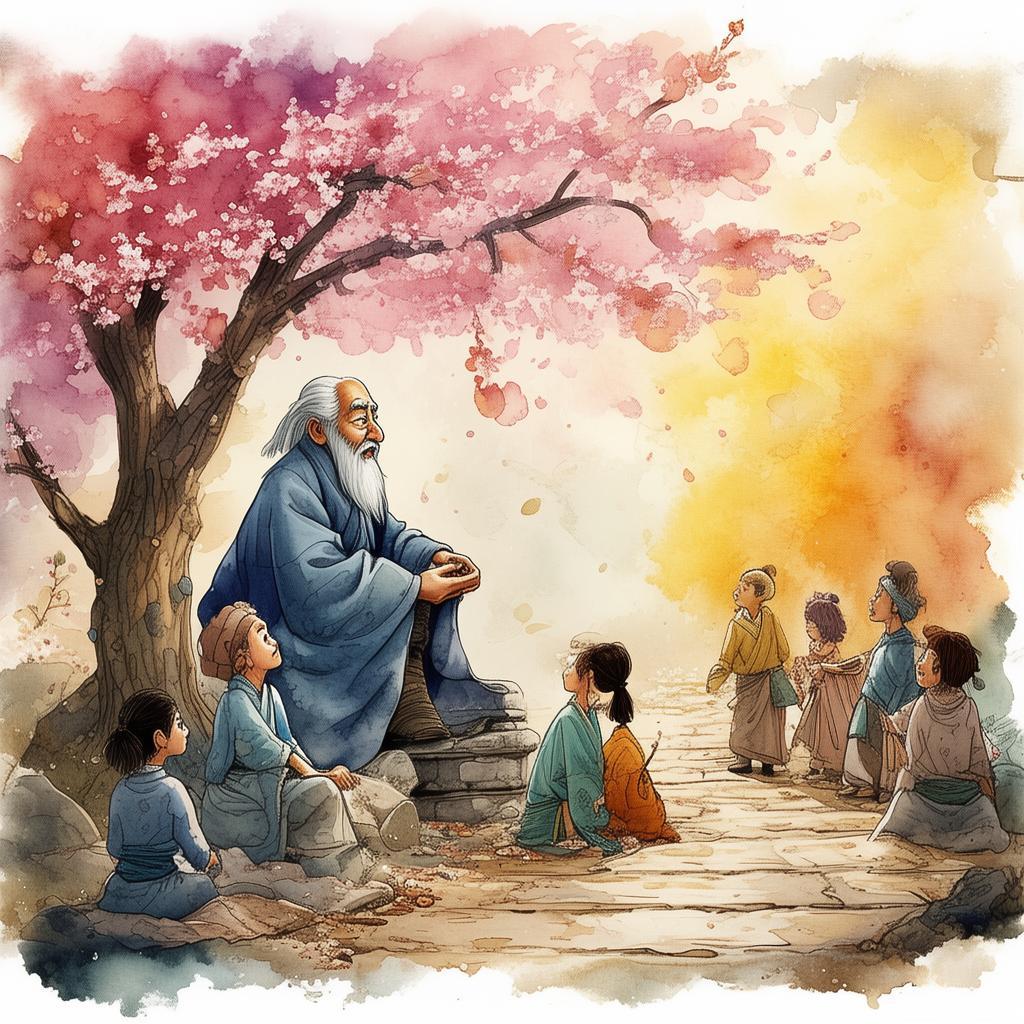Laughter in the Shadow of Despair: The Pandemic's Paradox
In the quaint town of Harmony, nestled in the heart of the verdant countryside, the tranquility of life was suddenly shattered by the outbreak of a novel virus. The townsfolk, who had once known the gentle hum of daily life, found themselves caught in a whirlwind of uncertainty and fear. Yet, amidst the chaos, a curious phenomenon began to emerge—a pandemic of happiness and despair.
It all started with a single case, the story of which quickly spread like wildfire. Mrs. Chen, a cheerful woman in her sixties, was diagnosed with the virus. Her upbeat demeanor became the talk of the town, as she laughed and sang while being quarantined. The townspeople were both amused and bewildered, but they couldn't help but feel a spark of hope in the face of this dire situation.
As the virus spread, it seemed to take hold of people in different ways. Some, like Mrs. Chen, experienced a surge of happiness, finding new reasons to smile and laugh in the face of adversity. Others, however, were consumed by despair, struggling with the isolation and fear that came with the pandemic.
Amidst the mix of emotions, a young doctor named Liang found himself at the center of it all. A dedicated and compassionate man, Liang worked tirelessly to care for the infected and comfort the anxious. He noticed the peculiarities of the virus, which seemed to affect people differently, and decided to delve deeper into its origins.
Through his research, Liang discovered that the virus had a unique effect on the human psyche. While some individuals experienced a boost in happiness, others succumbed to despair, leading to a paradoxical situation where the pandemic was both a source of joy and sorrow.
One of Liang's patients, a young woman named Meiling, perfectly encapsulated this paradox. Meiling had always been an optimistic person, but the virus left her in a constant state of melancholy. She would laugh one moment, only to burst into tears the next. Liang, determined to help her, began to spend more time with her, learning about her life and her struggles.
As they grew closer, Liang noticed a glimmer of hope in Meiling's eyes. She began to find small joys in the simple things, like a sunny day or a warm cup of tea. Inspired by her resilience, Liang shared his findings with the town, hoping to spread awareness about the virus's unique effects on the mind.
Word of Liang's research reached the ears of a prominent psychologist, Dr. Wang. Intrigued by the possibility of a virus affecting mental health in such a profound way, Dr. Wang decided to collaborate with Liang. Together, they embarked on a mission to understand and alleviate the mental toll of the pandemic.
Their research led them to develop a program aimed at helping those affected by the virus. The program combined therapy, mindfulness, and community support, all designed to help individuals navigate the complex emotions brought on by the pandemic.
As the program gained traction, Harmony began to heal. Laughter and happiness returned to the streets, but they were now intertwined with a newfound understanding of the human spirit's resilience. The town's paradox was no longer a source of confusion but a testament to the incredible strength of the human mind.

One day, as Liang and Dr. Wang stood on the town square, they watched as the townsfolk gathered for a celebration. The air was filled with music, laughter, and the warmth of shared stories. It was a sight that could have only been described as a microcosm of the pandemic's paradox—a celebration of life, despite the darkness that had once threatened to engulf it.
In the end, Harmony emerged from the pandemic not just as a town that had survived, but as a community that had thrived. The laughter in the shadow of despair had become a symbol of hope, a reminder that even in the darkest times, there is always a light to be found.
The pandemic had left its mark on the town, but it had also sparked a profound transformation. Harmony had learned to embrace the paradox of joy and sorrow, using it as a catalyst for growth and understanding. The townsfolk had discovered that happiness and despair were not mutually exclusive, but rather two sides of the same coin—each an essential part of the human experience.
As the sun set over the horizon, casting a golden glow over the town, Liang and Dr. Wang exchanged a knowing smile. They had faced the joy and despair of the pandemic together, and in doing so, they had become a part of something much larger than themselves. The pandemic had changed them, but it had also made them stronger. And in the end, that was the true paradox of the pandemic—a source of both happiness and despair, but ultimately, a force for good.
✨ Original Statement ✨
All articles published on this website (including but not limited to text, images, videos, and other content) are original or authorized for reposting and are protected by relevant laws. Without the explicit written permission of this website, no individual or organization may copy, modify, repost, or use the content for commercial purposes.
If you need to quote or cooperate, please contact this site for authorization. We reserve the right to pursue legal responsibility for any unauthorized use.
Hereby declared.









